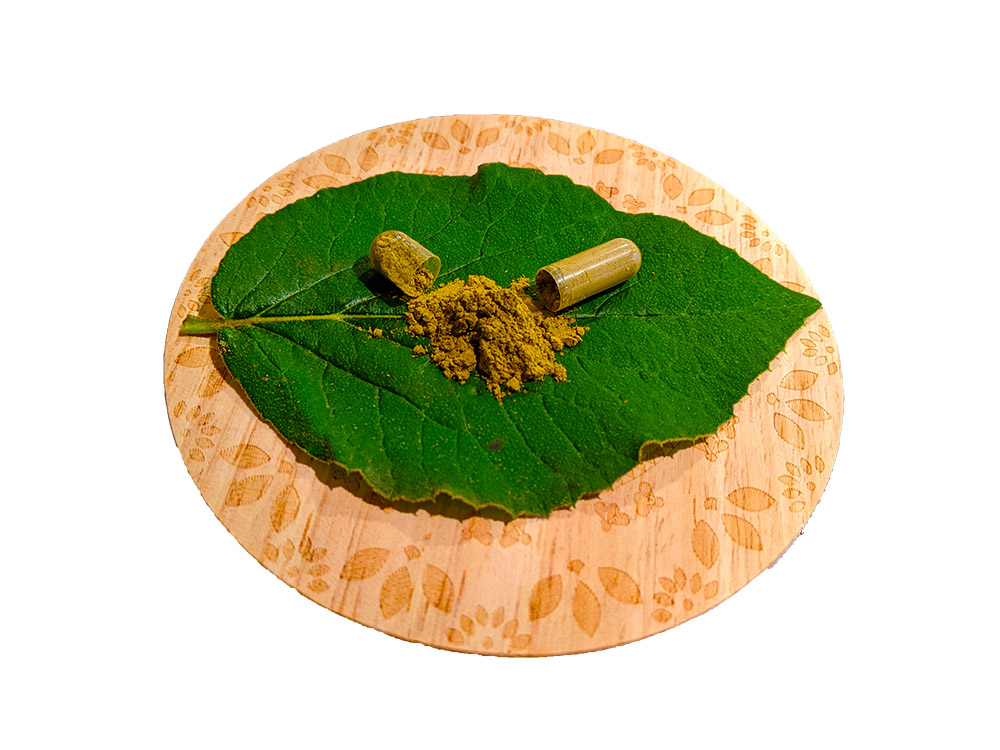
Health Claims in Texas Smoke Shops
With a dearth of regulation and market enforcement, marketers of kratom, kratom-derived synthetics, and products like hemp and THC continue to employ shady business practices to sell their products.
Researchers from university pharmacy and medicine departments conducted a secret shopper investigation at 100 smoke shops in San Antonio and Austin, Texas, to assess what employees were telling customers about THC and kratom.
In the study published in The American Journal of Drug and Alcohol Abuse, researchers found:
Claims regarding pain (50%), insomnia (31%), and mental health disorders (27%) were most commonly discussed for THC, while drug withdrawal/cravings (76%), pain (69%), and mental health conditions (31%) were most frequent for kratom. When specifically asked about adverse effects, 22% and 24% of smoke shop employees, respectively, did not disclose any risks about THC or kratom; most others provided minimal information. The most common risks discussed were sedation (36%) and psychiatric (31%) adverse effects for THC, and dependence (59%) and gastrointestinal (24%) adverse effects for kratom
The researchers called for better consumer education, in part by requiring THC and kratom vendors to “improve health information provided by smoke shop employees, and incentivize store owners to devote resources to employee education are needed.”
In Texas, however, the researchers’ suggestions could be ignored regarding THC products, as Senate Bill 3 is headed to far right Texas Governor Greg Abbott’s desk. The bill, if not vetoed, will ban all products containing THC, which includes the state’s $8 billion hemp industry that employs 50,000 Texans. Hemp contains trace amounts of THC and therefore would be outlawed. Only isolated cannabinoids like CBD and CBG would be available.
Kratom was also threatened with a ban in Texas in a bill that has recently died.
The Texas Kratom Consumer Health and Safety Protection Act was passed on May 5, 2023, and went into effect on September 1, 2023. The law regulates the sale of kratom, ensuring manufacturers provide third-party lab testing and proper labeling to protect consumers. However, enforcement of these laws sometimes lacks adequate funding, and markets sometimes change very little under KCPA laws.
7-Hydroxymitragynine and Mitragynine-Pseudoindoxyl Sold As “Kratom”
In a separate study, scientists collected online data on the marketing of synthetic kratom-derived 7-hydroxymitragynine (7-OH) and mitragynine pseudoindoxyl (MP) products. The scientists found, out of 304 products, “MP and 7-OH-MP combination products were almost uniformly marketed as “kratom” while 92.0 % of 7-OH-only products were advertised as such.”
Marketing alkaloid products as kratom is problematic, especially when these products feature alkaloids that primarily as metabolites of mitragynine, and not in plain leaf. “Kratom” has been consumed for at least centuries while 7-OH and MP have only been consumed recently, and have not been tested in a scientific setting on human beings in clinical trials.
Very little testing of these synthetic alkaloids have been done on animals, and the few studies done have concluded the alkaloids have a very high risk of dependency in comparison to natural leaf kratom. Long term effects of 7-OH and MP are unknown. The scientists therefore suggest more research and “regulatory action should be undertaken.”
Science Continues to Tell Us Exactly What’s in Kratom Products
In a third study, more specifically an ecological momentary assessment, researchers tested 341 primarily whole leaf kratom products. They found that the products were “similar to each other in their alkaloid composition” and, despite claims of widespread adulteration, “found no evidence of adulteration with illicit or prescription drugs”. With self-reporting of 357 adult kratom consumers, researchers found that consumers ingest on average of 78.3 to 134.6 mg of mitragynine per day.
These studies point to the need for better science-based regulation, coupled with enforcement, of the kratom market in particular and dietary supplement market in general, in order to ensure better outcomes for consumer safety.
As always, prohibition ensures that no regulations whatsoever will be in place, with kratom confined to an illegal market.
